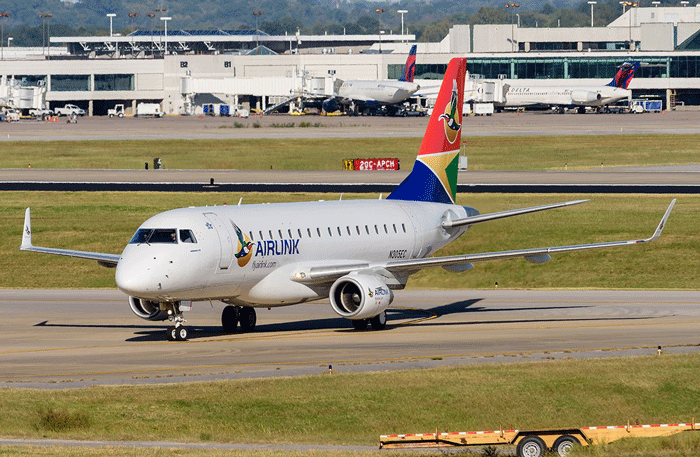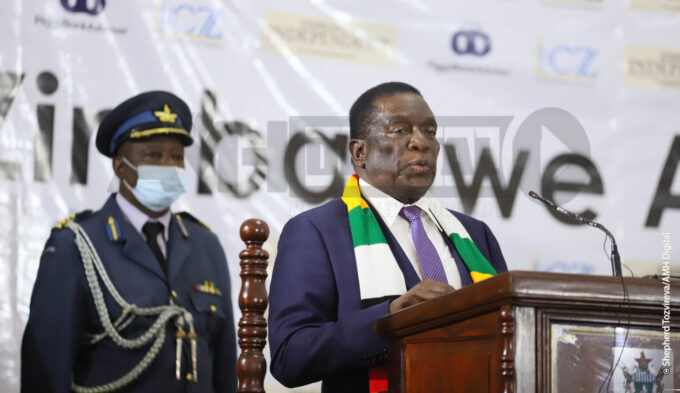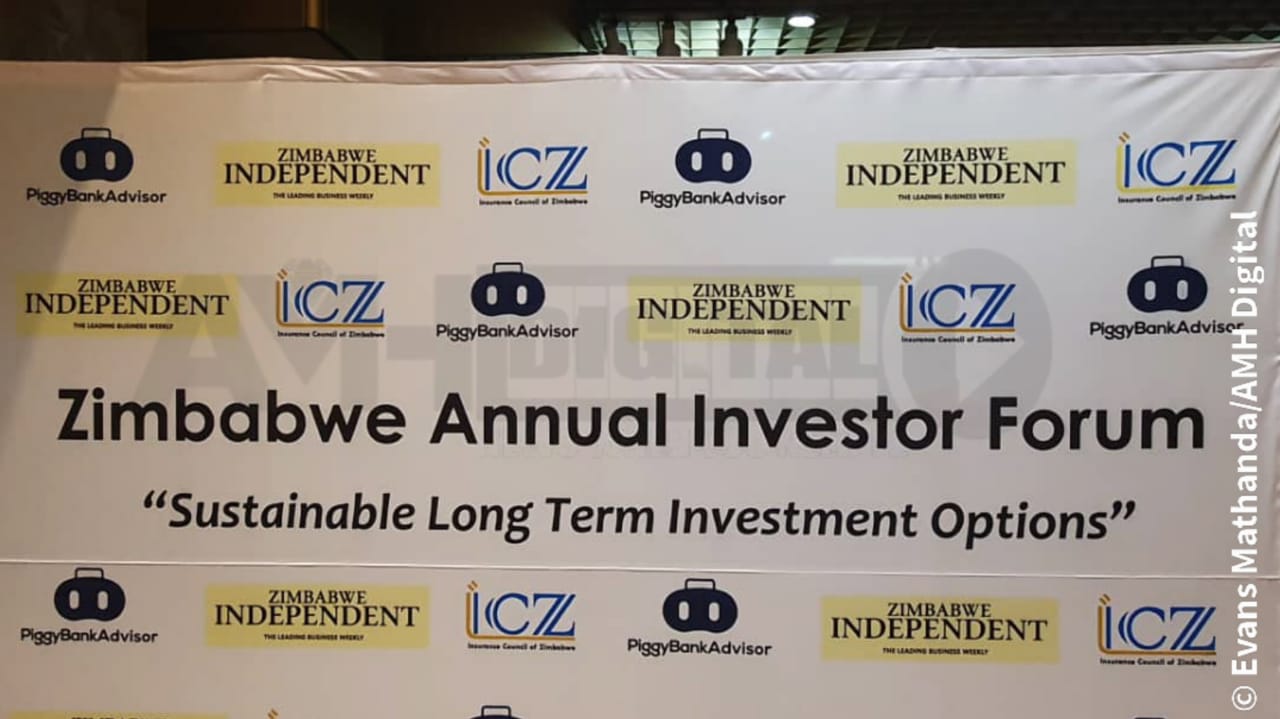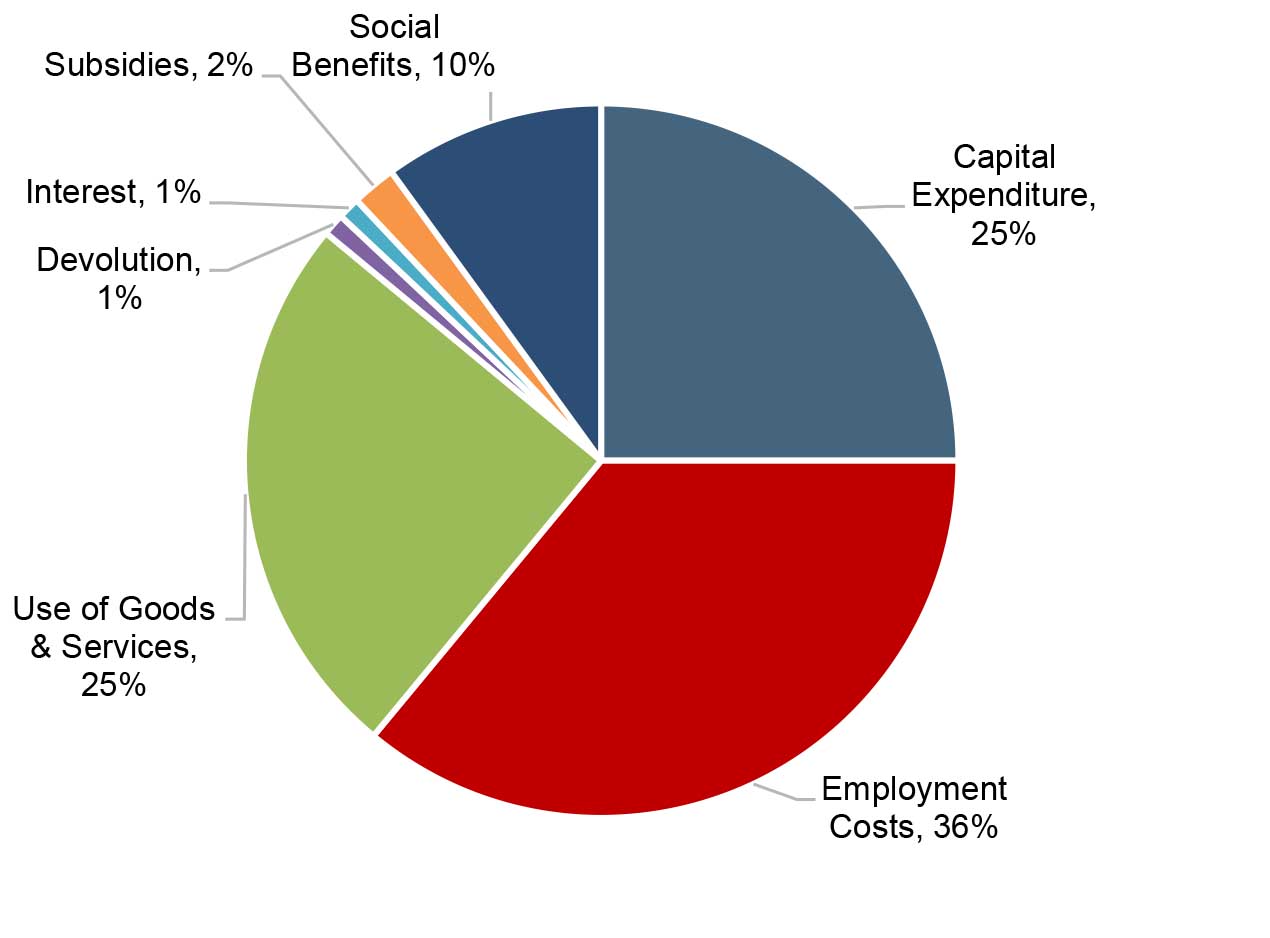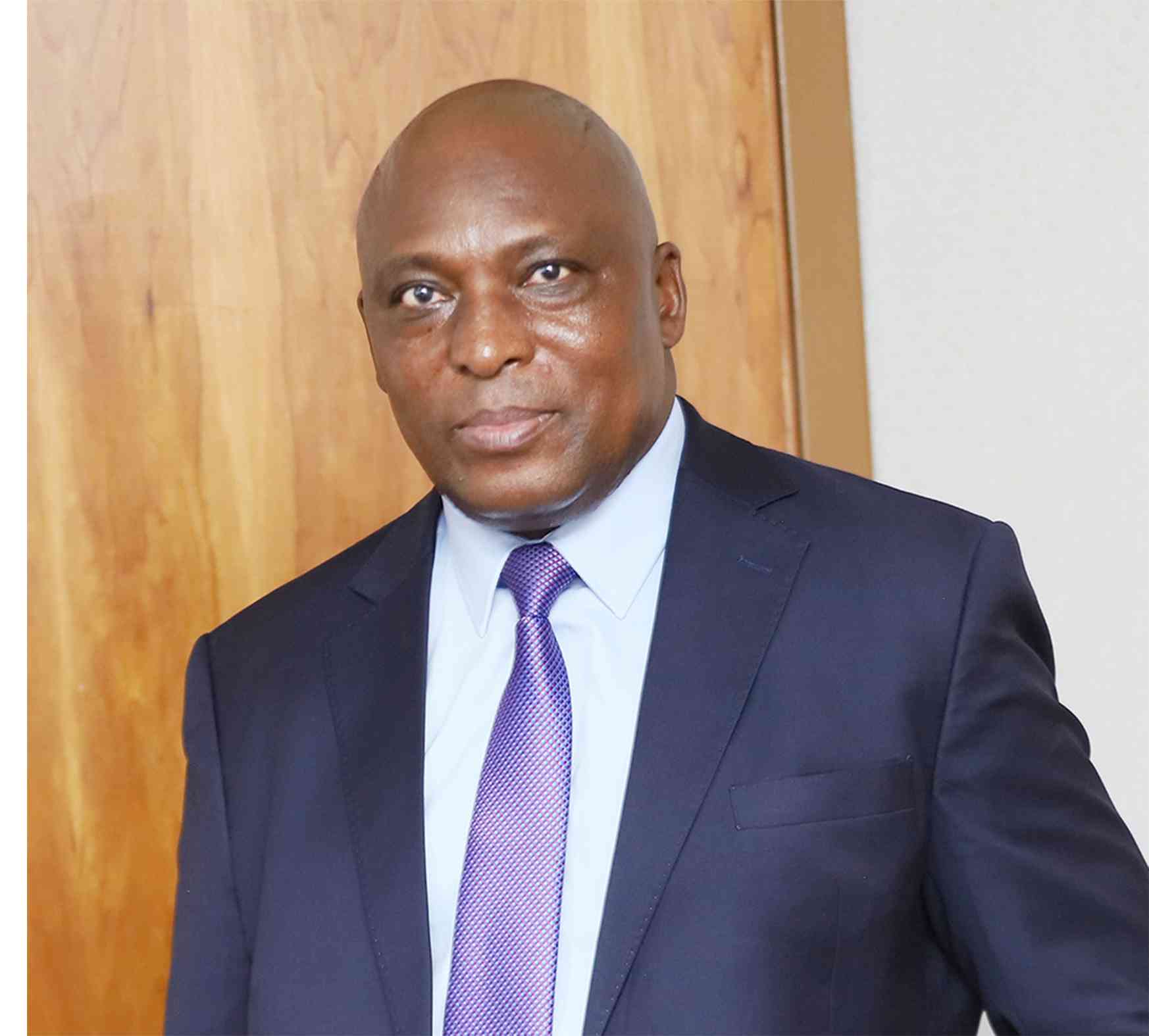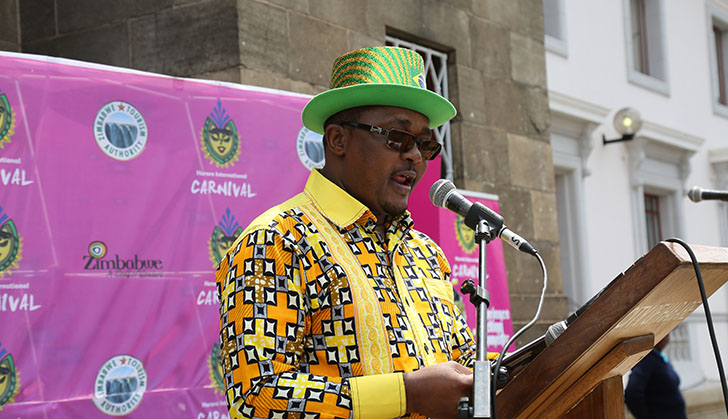
Alpha Media Holdings editor-in-chief Wisdom Mdzungairi (WM) caught up with former foreign affairs minister Walter Mzembi (WM) for a sit-down interview to discuss Zimbabweans’ struggle to understand the political logjam and prospects for the future. Below are the excerpts of the interview:
WM: Could there be reasons why you decided to skip the country? WM: Lions are the symbols of leadership in the jungle, but one of the traits of the alpha male upon taking over territory is it wipes out all traces of its predecessor’s legacy, including all the younger males fathered by him. If you do not create space for the alpha male by going outside its circumference of dominance, it will eat you up.
Read More
WM: Some citizens considered you as a smart cabinet minister. What got you in trouble? WM: When I was re-assigned to the coveted post of Minister of Foreign Affairs in president Robert Mugabe’s last cabinet reshuffle, that was the straw that broke the camel’s back. It signalled his radical shift from his erstwhile liberation group comrades that had waited for 37 years to succeed him, to a younger generation with no liberation credentials that was seen in former “High Command” military circles as a technocratic group of ambitious “arrivalists”. I was in that basket. My deployment to Foreign Affairs was deeply detested by the other faction going by the moniker “Lacoste’; for them it meant I was being prepared for higher office ahead of them. I became a natural target.
WM: Let’s talk about the 2018 election campaign. What is your view on the election results? WM: Well, first and foremost, Zanu PF leadership post-November 2017 lost an opportunity to unite the nation. They had everything going for them; an international conspiracy against Mugabe translating into goodwill and endorsement for the alternative or his replacement, opposition consent and endorsement in which its leadership characterised the change of guard as a “military assisted transition” and a “miracle”.
Our standards are totally different. MT ran his race well. I supported him fully and loyally. I’m running mine, hopefully I finish well. Please support! You will all smile!
— nelson chamisa (@nelsonchamisa) June 3, 2022
- Chamisa under fire over US$120K donation
- Mavhunga puts DeMbare into Chibuku quarterfinals
- Pension funds bet on Cabora Bassa oilfields
- Councils defy govt fire tender directive
Keep Reading
An inclusive transition in the form of GNU2 (government of national unity), could have delivered a genuine “New Dispensation”. Unfortunately, the triumphant faction opted for a factionally-branded winner-take-all power-sharing agreement with the military, snubbing other conspirators or endorsers.
This set the stage for the 2018 elections from a Zanu PF angle, which was meant to sanitise the “palace coup”, and consolidate power, and on the part of the opposition, it became a revenge mission to punish Zanu PF for breach of contract.
Meanwhile, a bitter Mugabe was only too pleased to endorse the opposition after being snubbed on earlier rapprochement overtures, which I was personally involved in, but had no takers from the new administration still on a political honeymoon.
So 2018 had a huge Mugabe factor weighing in favour of Nelson Chamisa whom he publicly endorsed whilst at the same time withholding his endorsement of the MDC, a party he had done a good job of discrediting for the previous two decades.
So people went into an election with that understanding of support for Nelson Chamisa whilst retaining Zanu PF as the ruling party.
So one wonders what was the mischief in Mugabe’s mind? It was a chess move …. That said, the outcome in which Mnangagwa led with a disputed very lean margin behoved him as the “winner” to seek inclusivity, reunite the nation, because you can’t throw away a people’s consent split nearly in half, which essentially is the reason why most of his policies today are like seeds falling on thorns, bushes and rocky ground, not fertile soil.
So my summary of 2018 elections is Zanu PF was more popular than Mnangagwa, whilst Chamisa was more popular than MDC. The big question on analytical minds is: has this changed going forward to 2023?
WM: Chamisa refused to concede, and he is refusing to even co-operate with the Zanu PF administration. What do you think of this? WM: When one embarks on a mind journey, Chamisa has calculated time on his side. He is young and can live to fight six more elections if I use the current President’s age as a reference. With that, decisions he makes out of expediency can cost him the remainder of his political career, especially if he abandons voters for personal glory and political accommodation.
The fact that an opposition leader needs courage to exist only means that there is no democracy in the country. pic.twitter.com/pauyo0AhM6
— Chisie (@tapitaps) June 3, 2022
On the part of the victors, Zanu PF, a combination of vanity and disdain killed the reconciliation process. The sponsoring of splits inside the opposition does not build trust. The Zanu PF victorious faction breached trust by going it alone after November 2017 after being aided to victory and power.
WM: You have always been a proponent of people power. Is there something that you think citizens should be doing right now? WM: It’s not for citizens to lead on this one, except to register to vote in massive numbers with the same exuberance and turnout as at Independence and choose leaders of their choice emphatically. Mnangagwa still has a chance to redeem himself, demonstrate leadership and unite the nation starting with his own party. Zimbabwe needs a process similar to the one that birthed independent South Africa.
By doing so, he will do his legacy a favour in getting consent on minimum conditions for a free and fair elections, and set the stage for an acceptable plebiscite.
Zimbabweans can do it on their own, it’s just leadership and it comes from the Head of State if he chooses wisdom and to rebuild the nation ahead of out-manoeuvring opponents.
Institutions like the church and traditional leaders are key in moderating honest dialogue in the national interest. We can’t afford another disputed election in 2023, otherwise we may as well count ourselves as a lost generation!
WM: You were labelled a G40 in the Zanu PF fights to control its soul. What was your ultimate plan as the G40? WM: Mugabe was installed as Prime Minister in 1980 at about my age today. I am slightly older perhaps, but in the current Zanu PF, because of its reluctance to renew, I am still labelled a youth and G40 when you start to be contrarian. G40 is a very selfish label weaponised by an entitled group of people who designed a sequence and hierarchy of succession in Mozambique occasioned by our demographic absence.
We missed the action, not by choice, but by an act of God — we were not part of that liberation war generation. We were brought into government through a process of renewal largely as technocrats.
Turning to my relationship with (former) president Mugabe, I served him and the state loyally to the end; I have no regrets about doing what my Oath of Office demanded of me, including seeking a more orderly and legal transition which I authored with Sadc and was endorsed by the Double Troika in Luanda during the unfolding events of November 2017.
It missed implementation because Mugabe capitulated to an impending impeachment ahead of the conclusion of this process which was 15 minutes late!
WM: How would you comment if someone says perhaps Mugabe was overrated, the faction that took over was his pillar? WM: President Mugabe had all the intelligence on the impending events, but somehow he was in denial. He never imagined his liberation war colleagues would take him out by force given their journey back in the struggle together and how they had taken care of each other.
He had designed and presided over a state in which he never imagined there would ever be a military coup. On reflection, he also overstayed his welcome, and it’s a lesson to us all on legacy management. You have to leave when people still want you. But power is sweet, you really have to be a Mandela to leave the stage after one term!
WM: Does G40 have a plan to come back home — are you coming back and when? WM: One day I watched President Emmerson Mnangagwa on television describing G40 as “enemies of the state”, it was all over social media. With that, only a fool walks back to such treasonous profiling when there is no evidence of a genuine desire to reunite or let contrarians be.
The President would have to rescind his statement and extend an amnesty to all his perceived foes otherwise it’s not yet Uhuru. But Zimbabwe is also a “World of Wonders”; this was my brand characterisation of it during my Tourism ministry days.
It can surprisingly throw you back on the centre-stage just like it did with Mnangagwa himself after two weeks of exile! The universe conspires on a timely comeback and you have to listen to the “still voice” of the divine timing.
WM: Do you think that Chamisa’s Citizens Coalition for Change has a super chance to form the next government at the 2023 polls? WM: To form a government they need to win elections. Can they win? Yes they have won before forcing us to a runoff they abandoned and subsequently joined a GNU. They need to examine all the factors that made them win then and reapply them.
The ground for that to happen is as fertile as it was in 2008 but they probably lack the courage of Morgan Tsvangirai. He was not a lawyer and therefore his calculation of risk was different. If you want to win a battle emphatically you change the battleground like the eagle when it’s preying on a snake.
It picks it up, spins it into the air where it has no balance. The current team loves the courts, but then again they are lawyers yet they forget who is in charge of the courts. A discipleship of lawyers in the executive can be a source of paralysis, but then again you gotta love their temerity, branding and unpredictability.
On the other hand Zanu PF in my estimation based on being battle hardened, foxy and its mass mobilisation strategies often dismissed as vote buying particularly in rural areas will not go without a real hard fight. Its presidential candidate may be older and less appealing but they have solid structures that outperform their rivals, notwithstanding who leads.
WM: So in your view, do you think the current Zanu PF leadership has the capacity to defeat CCC in a free and fair election? WM: “Free and fair” must be defined first and agreed upon as I have alluded to already. We need the winners to be humble and magnanimous in victory and the losers to concede with dignity. With this it matters not who wins or loses, ultimately it’s the people of Zimbabwe who are the winners. Country first!
WM: What is your game plan for the 2023 elections? Do you foresee a Zanu PF offshoot contesting the elections and probably fronted by a G40 member? WM: Am not part of any collective and am therefore not competent to answer on behalf of G40 but I cannot discount anyone labelled as such contesting and wooing Zanu PF members and even CCC, that’s what elections are about.
However, if you ask me, what I would like to see going forward, is its rapprochement and greater internal democracy in the two main parties Zanu PF and all its factions, and CCC, all its ancestors like MDC uniting and setting the stage for a vibrant two-party system like in the major democracies of the world; parties with clear ideological thrusts, constitutions, vision, structures and elected leadership.
A small country like Zimbabwe hosting nearly 200 parties speaks to a politically sick nation where politics is seen as a commercial enterprise rather than serving the nation, and for me that’s problematic. So a Zanu PF offshoot for me is a no-no and that’s why I persuaded Mugabe in 2018 to consider reintegration of G40 into the victorious mainstream party rather than sponsor an offshoot.
I still believe in that to this day, but we must provide for floor crossing to those whose ideological shifts and beliefs would have changed along their political journeys. At the very most, a Third Way would be a vibrant proposition, a kind of “Liberal Party” that subscribes to neither of the two mainstream parties. This can be a home for centrists. Too many parties dissipate national energy and break national cohesion and consensus and is clearly a recipe for spoilers and chancers, very counterproductive democratic modelling.
WM: Do you believe the former G40 elements are still relevant in Zimbabwean politics? If so, how? WM: G40 is a euphemism for generational renewal and not appropriated to partisanship or a number. If it was a number then all the kingpins in exile would not fit into this characterisation, we would be G50s and G60s. So as long as there are factions in Zanu PF, G40 subsists and exists. Emmerson Mnangagwa inherited Mugabe’s bureaucracy with all the renewal elements in it.
There are G40s in government today as there are in the party, they hang on because of bread and butter issues. Government remains Zimbabwe’s single biggest employer.
WM: Nothing much has been said about G40 fallout with their erstwhile colleagues, can you share some details of what led to the fallout with colleagues in Zanu PF? What would you say are the factors that led to your falling out? WM: History is written by the victors, those that have hanged heroes.
WM: How would you describe the status of your relationship with the current Zanu PF leadership? WM: There is no harmony but we communicate somehow. We have each other’s numbers. I was “expelled” and I take that as some joke to this day, because of how unprocedural the excommunication that took place was. The people have never accepted this verdict; they consider us victims of heavy-handedness and an unforgiving spirit currently possessing the victors of the November 2017 power contestation.
In due course however current leadership may come round to a general amnesty and restitution; there will be a leader or mindset shift in the future aligned to this political prophecy. Anger subsides and gives way to the reality of inclusivity and magnanimity. It’s a winner. The big question is: Will they find me and others at the station they offloaded us or would we have moved on?
WM: Do you think Zimbabweans would have been better off with you/or another member of the G40 leading Zanu PF and government today? WM: If the politics of Zimbabwe had been allowed to develop organically post-Mugabe, the country should have a leader today who is truly a people ‘s choice. Instead, we have a military imposition sanitised by a subsequent election.
The question still remains: did that cure the coup or factionalism or it set us back many years in this democratic journey. One thing we could never run away from, Zimbabwe after Mugabe needed generational renewal not more of the same. Who it could have been, that is the people’s choice in a free and fair election.
Boldly speaking, if it had been me, I have a vision and trajectory for Zimbabwe which is in the opposite direction of where the country is headed now!
WM: Do you feel in any way responsible for Zimbabwe’s economic decline and what would you say to citizens if given a chance to address them? WM: I represent the generation that came after some very difficult decisions had been made in the journey to an equitable nation. We are the generation that were to correct collateral mistakes and rebrand Zimbabwe into the Community of Nations and this is exactly what I was doing if you follow my footprint.
WM: How would your leadership have handled the situation? What is the Mnangagwa administration doing wrong? WM: The key to economic transformation is fixing the politics. Fix the politics in order to fix the economy. Under the current administration the political fundamentals are broken, governing in the shadow of a disputed election, a non-existent social contract. You govern with the consent of the people, not the police or the military only.
The latter are very important stakeholders in a power matrix where the people are central as voters. It doesn’t matter which way you slice it, the people are the true custodians of power, not the courts. It’s a matter of time before power reverts back to the people.
WM: What do you think of the Second Republic? WM: Reality is the military assisted transition produced a very painful outcome called a “Second Republic”. Until we cure this, it remains what it is. Will it cure itself? Perhaps those who currently hold power have a responsibility to reset the national agenda on redesigning the State afresh, it’s for their legacy. I wish to see them resign into guardianship after setting a transition in place that leads one day to free and fair elections. Rushing into 2023 without attending to this will just recycle extreme pain for another five years!
WM: Zanu PF has always taunted the opposition over so-called lack of ideology. Do you think CCC has an ideology that resonates with the citizens? What’s the G40 ideology? WM: The concept of ideology is generational. These are the ideals that drive the politics at any given time, essentially they are time referenced. Zanu PF’s ideology is caught in a time warp, this is what sponsors G40 seeking renewal and modernity whilst the remnants still think they are fighting a war. Any suggestion on Reform or Renewal is immediately rebuffed by “we fought for this country” completely oblivious of the fact that this was a people’s war.
They have commodified the liberation struggle. The CCC is what Zanu PF expelled in G40; and their aspirations are no different from the aspirations of G40, in pursuit of modernity, economic transformation, growth with equity, equal opportunity, renewal and happiness. These are the goals of a modern political party.
The guardians both dead and alive should aspire to one day witness a battle of generational vision, ideas and programmes for Zimbabwe from the terraces of peaceful retirement. Right now it’s not there, it’s a battle of personalities; we must test leadership intellect, vision and purpose. Politics should not be reduced to a beauty and youthfulness contest only but a battle of mature ideas and vision. That to me is genuine restoration of legacy!
WM: Do you need safety guarantees if you were to come back home? If so, why do you feel unsafe with your Zanu PF colleagues? WM: When the existential threat is no more I will come back home. When we find each other as Zimbabweans, as I describe above, I will be back!
WM: If an opportunity to meet President Mnangagwa and Chamisa separately affords itself, what would you tell them? With Mnangagwa – would you beg to come back home and participate in the development of your country, or, would you tell Chamisa how to prepare to win the next election? WM: I speak to Advocate Nelson Chamisa infrequently, very productive conversations we have from time-to-time. We don’t necessarily agree on everything, we were inducted into politics from different stables, but we speak from time-to-time, and agree on one fundamental – the need for Change. We are old school home boys and brothers, we served amicably in the GNU together.
Turning to President Mnangagwa, politics aside he is my brother from the Shumba Murambwi clan. Initially, I believed his “Let bygones be bygones” mantra. I took it seriously at some stage with lots of disappointment. I hope he can revive this in the future with greater sincerity and unity of purpose. We need all hands on deck to fix this country and no one is worth “begging” to serve; you are deployed, to which you either accept or decline to serve in public office. It’s not a must, you can serve as a patriotic private citizen, the majority do so.
WM: If approached to work for the government again would you take the offer? WM: It would be circumstantial and contextual for me to consider that, otherwise for now I am content out of government as it is currently constituted and envisioned. If they have tolerance and space for alternative vision, views and ideas, it’s possible to work together again. I worked under Mugabe and I would hold him for hours inside and outside the Cabinet trying to bring the best ideas on the table for our people and country. Does this team have the same attributes?
WM: Your parting shot? WM: We must leave Zimbabwe a better place for posterity! To our current leadership, both inside and outside government, legacy management is supercritical to avoid history repeating itself. The unfulfilled promise of “Operation Restore Legacy” rings very loud in people’s ears to this day, take stock of this process and what you promised; our primary legacy is freedom, unity, peace and development.
Fix the Politics to Fix the Legacy, Fix the Economy! Take note — the Economy is the biggest Opposition to the Second Republic. No Zimbabwean should be characterised as an enemy by another Zimbabwean. We are one!
WM: Thank you for your time

